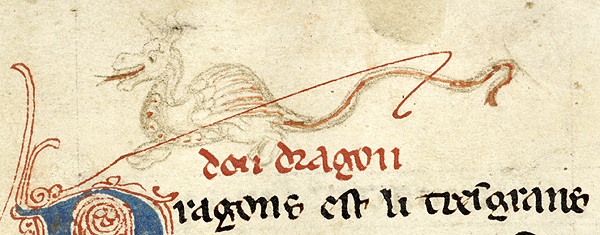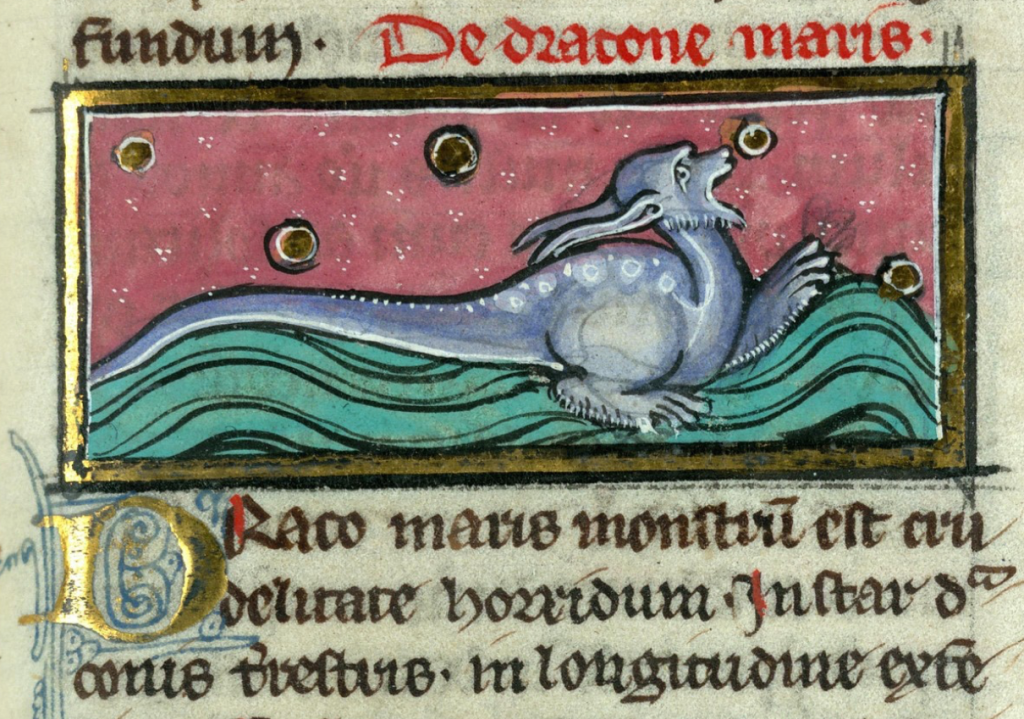brōga, m.n: terror, horror, danger. (BRO-ga / ˈbroː-ga)

brōga, m.n: terror, horror, danger. (BRO-ga / ˈbroː-ga)

sǣ-draca, m.n: sea-dragon. (SAE-DRAH-ka / ˈsæː-ˌdra-ka)

basilisca, m.n: basilisk. (BA-zih-liss-ka / ˈba-zɪ-lis-ka)

bryne-brōga, m.n: fire-terror. (BRUE-nuh-BRO-ga / ˈbry-nə-ˌbroː-ga)

sǣ-brōga, m.n: sea-terror. (SAE-BROH-ga / ˈsæː-ˌbroː-ga)

wæter-brōga, m.n: water-terror, terror of the deep. (WAT-er-BRO-ga / ˈwæ-tɛr-ˌbroː-ga)

mūþ-bana, m.n: ‘mouth-killer’, one who destroys with the mouth. (MOOTH-BAH-nah / ˈmuːθ-ˌba-na)

fēond, m.n: enemy, foe; fiend, the Devil. (FAY-ond / ˈfeːɔnd)

ōga, m.n: the feeling which is excited in a person, terror, dread, horror, great fear; an object which excites fear, a terrible, horrible thing. (OH-ga / ˈoː-ga)

nīþ-draca, m.n: hate-dragon, a hostile or malicious dragon. (NEETH-DRAH-ka / ˈniːθ-ˌdra-ka)
